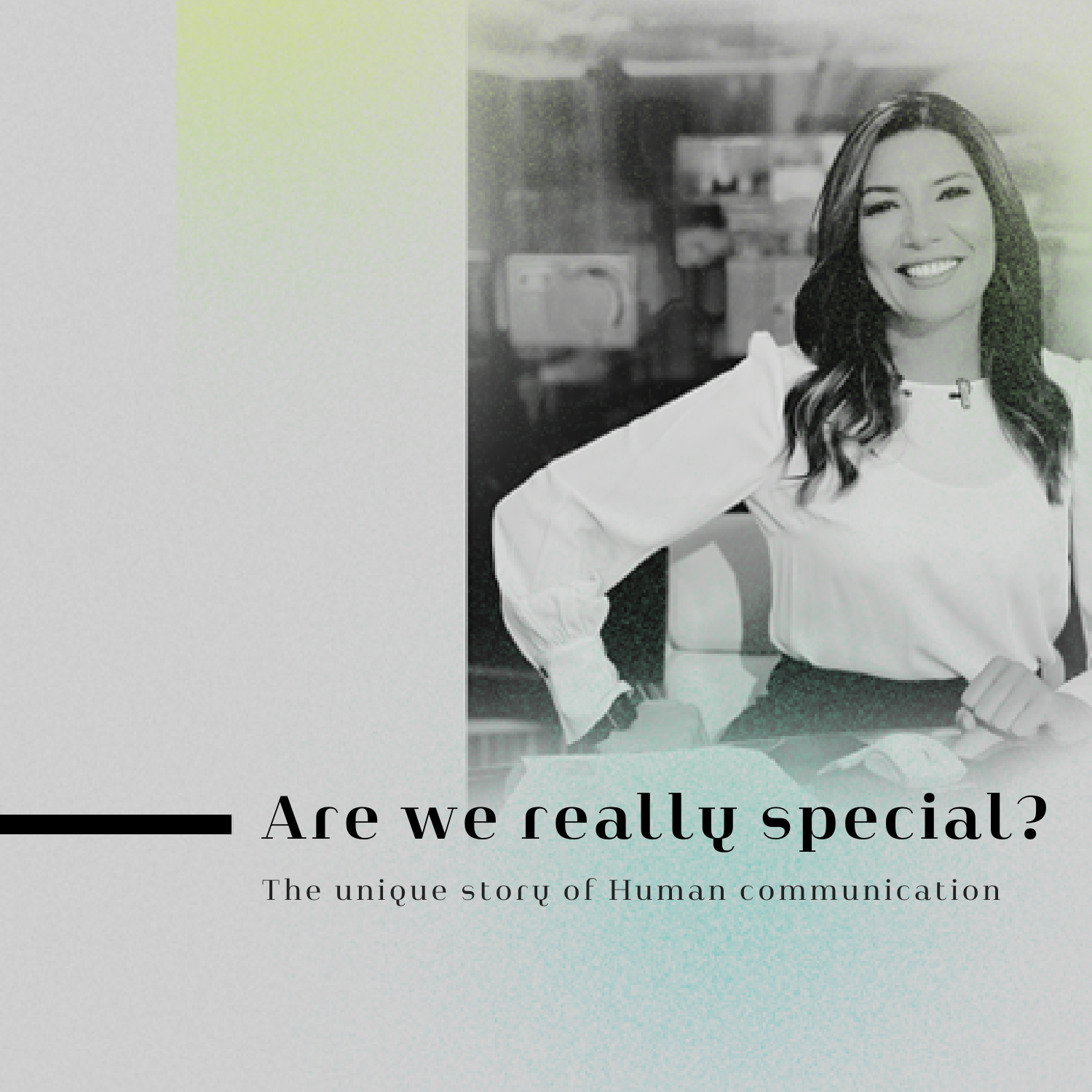Are we really special?
The unique story of Human communication
The unique story of Human communication

The history of humanity is full of pivotal moments that helped shape the world we live in today. But nothing compares to that mysterious moment when a special set of cognitive abilities emerged, forever changing the way we share information. It is the beginning of a thrilling journey all the way to the top of the food chain. What is fascinating, though, is the journey all the way down to the understanding of the inevitability of death, self-awareness and abstract thinking. Against all odds, a spark of creativity ignited by our developing cognition have led us to flight, electricity and instant connection – the Internet.
The history of humanity is full of pivotal moments that helped shape the world we live in today. But nothing compares to that mysterious moment when a special set of cognitive abilities emerged, forever changing the way we share information. It is the beginning of a thrilling journey all the way to the top of the food chain. What is fascinating, though, is the journey all the way down to the understanding of the inevitability of death, self-awareness and abstract thinking. Against all odds, a spark of creativity ignited by our developing cognition have led us to flight, electricity and instant connection – the Internet.
The human communication system outranks any other system in its complexity and out-reach. It is an intricate combination of verbal and non-verbal messages that are not innate but learned. In fact, the existence of language is a proof of collective learning underlying the cognitive abilities we display. It is this particular skill that allowed us to correct and improve ideas, behaviours and techniques within one generation. As a result, our evolution was so fast and exponential compared to the thousands-of-generations-long evolutionary genetic selection and improvement.
Human Communication is the fundamental catalyst to our evolution
Human Communication is the fundamental catalyst to our evolution
One of the earliest forms of human communication is verbal communication. Oral transmission of knowledge has never been confined to one region. It has and continues to be a globally shared tradition. Songs, poems, and chants were some examples of how people communicated. During this time, people would gather in groups and pass down stories, myths, and history. Indo-European poets were known as “weavers of words” due to their mastery of the spoken word and ability to tell stories.
In the meantime, Nomads of Arabia are one example of many nomadic tribes who have continued to tell their stories and histories orally throughout history. Nomadic life leaves these individuals without permanent architecture and possessions, but their oral traditions are their belongings and roots. To help preserve them, Arab nomads rely on poems passed down by the poets. Nomadic poets are masters of word and wit, mesmerising storytellers whose calling is to spread the stories, cultures, and histories of their tribes.
Just a few major moments in time. I haven’t mentioned the writing and carving tools that are instrumental, pun intended, to Human communication. But the video can go on and on if I had listed every stepping stone in our collective journey.
The capacity to consciously build on previous knowledge enabled us as a species to transmit detailed information across great distances and time. Information sharing, beyond the basic survival-related signs, became a basic need, food for thoughts if you like. What could’ve spurred our need to draw in caves, sculpt humanoid figurines and embellish our stone spears if not for our yearning to learn, grow, and connect?
In the past 200 years, the biggest shift in global communication took place. An irreversible shift and an insatiable appetite for connection were caused when information became in the reach of the masses and is no longer a luxury afforded by the few. Starting with the printing press and culminating in our instant sharing, our technological communication era has just started. If old symbols, scriptures and stone tablets have built our world, how will we, the technologically enabled offspring of prehistoric forefathers, build the future?

 Are we Humans or Are we Parrots?
Are we Humans or Are we Parrots? 